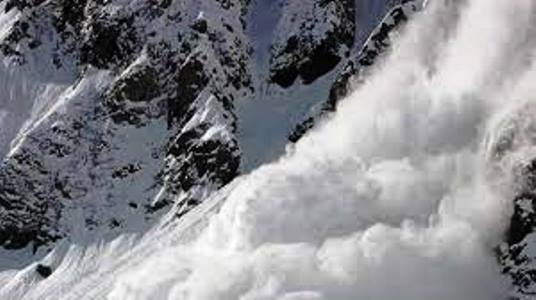An avalanche killed seven tourists in India’s Himalayan state of Sikkim near a mountain pass to the Chinese region of Tibet on Tuesday, with rescue workers calling off the search for bodies as night fell.
The army said at least 20 people had been rescued alive after several vehicles carrying tourists to the strategically located Nathu La pass between Sikkim and Tibet were hit by the falling snow.
Local police added that eight survivors were in critical condition.
“We are doing one more check before calling off the rescue operation since it is getting dark and some more snow has started coming down,” senior police official Tenzing Loden Lepcha told Reuters on phone.
“We have accounted for all missing persons, but to be sure we are doing one more check.
“We have also put out a helpline number for families.”
Several avalanches have hit the Indian Himalayas over the last two years, killing at least 120 people.
A peer-review study in the U.S. Proceedings of the National Academy of Sciences concluded in 2018 that climate change had enhanced avalanche risks in the Indian Himalayas.
The causes of Tuesday’s disaster were not immediately clear.
Police official Loden Lepcha said it was a clear day after unseasonal rains in the area, adding that April was not known for avalanches.
The incident took place at 11:30 a.m. (0600 GMT), the army statement said. Rescue officials earlier said they feared at least 70 people were under the snow at the site, some 40 km (25 miles) from the state capital Gangtok.
Kavita Agarwal, a traveller from Delhi, told Reuters that local police had discouraged tourists from going to a lake that is on route Nathu La pass because of weather conditions.
When the avalanche hit, people were taking photographs near a stream, Loden Lepcha said. Rescue workers dug with shovels near a waterfall, images released by India’s ministry of defence showed.
Yellow heavy machinery worked to clear the churned-up snow left by the avalanche, the images showed.
An additional 350 stranded tourists and 80 vehicles were rescued after the snow was cleared from the road, the army statement said.
“Distressed by the avalanche in Sikkim,” Prime Minister Narendra Modi wrote on Twitter.
“Condolences to those who have lost their loved ones. I hope the injured recover soon,” he added.
Thousands of tourists flock to Sikkim every year, dubbed the “Land of Mystic Splendour”, located below Mount Khangchendzonga, also known as Kanchenjunga, the third-highest mountain in the world.
Nathu La serves as a route for the Kailash Mansarovar pilgrimage to Mount Kailash in China, considered one of the holiest pilgrimages in Hinduism.
The 3,500 km (2,100 miles) Himalayan border between India and China has been disputed since the 1950s.
Both countries have raced to improve roads and railways in remote regions in recent years.
Avalanches and flash flooding in the Himalayas are common during summer and monsoon months, as snow melts and heavy rains combine.
The rapid construction close to the border has been linked to some geological instability in the region.
Loden Lepcha, however, said the area around the avalanche was mostly untouched nature.
“There’s no construction, it’s a completely natural area,” he said.
In June 2013, record monsoon rains in the northern Himalayan state of Uttarakhand caused devastating floods that claimed close to 6,000 lives, one of the worst natural disasters to strike in the country.


